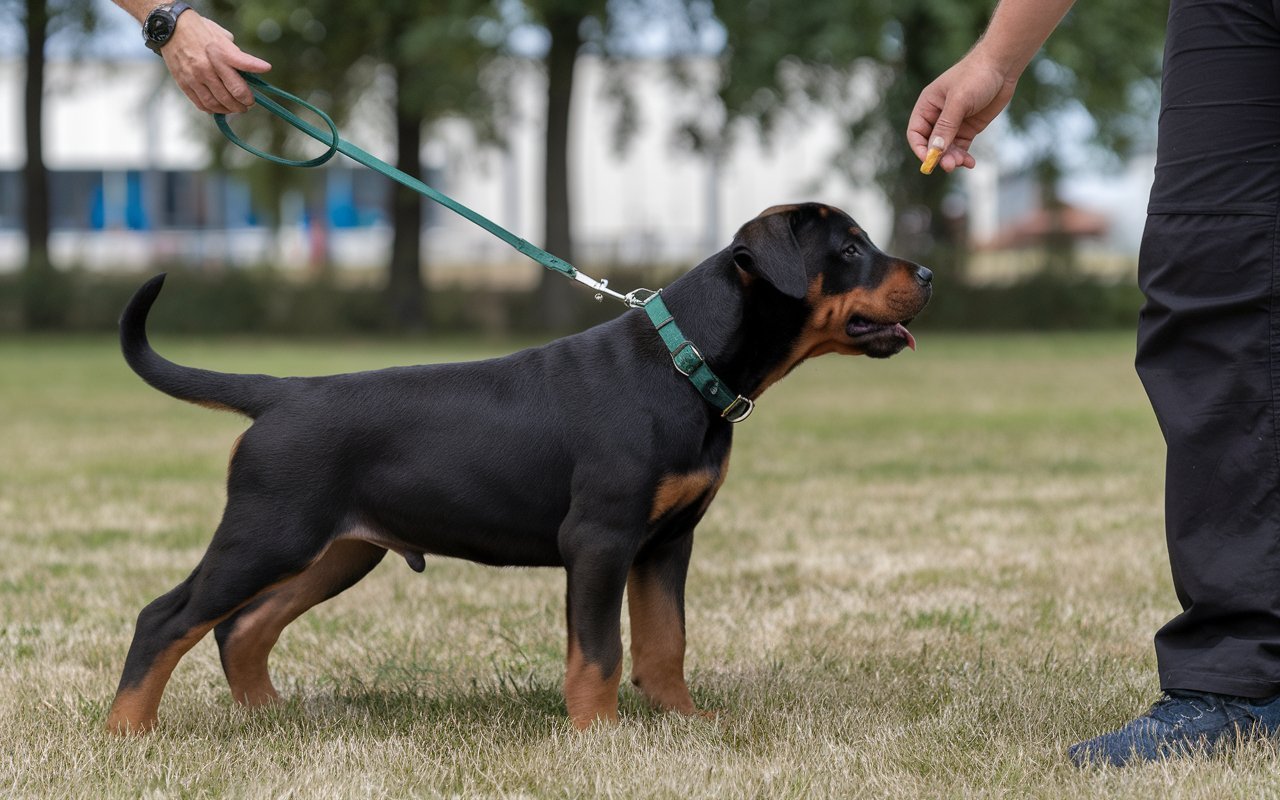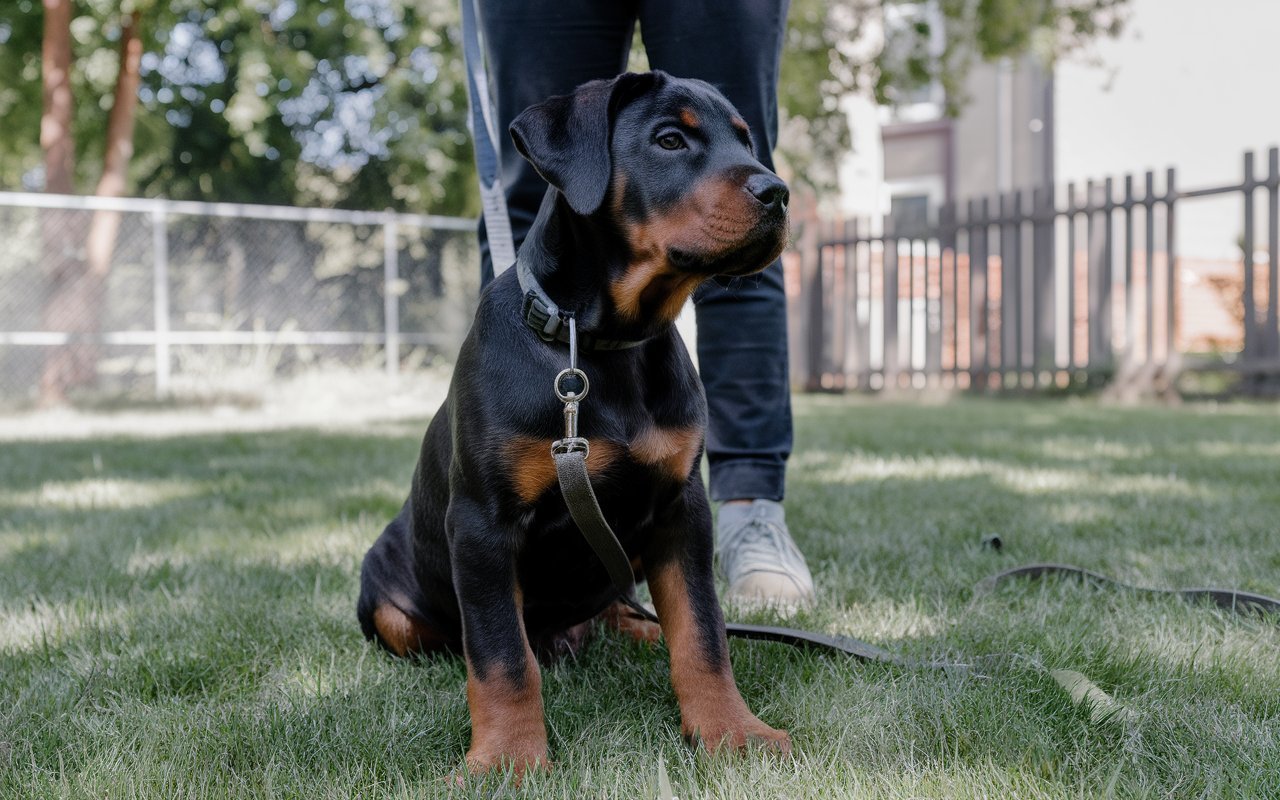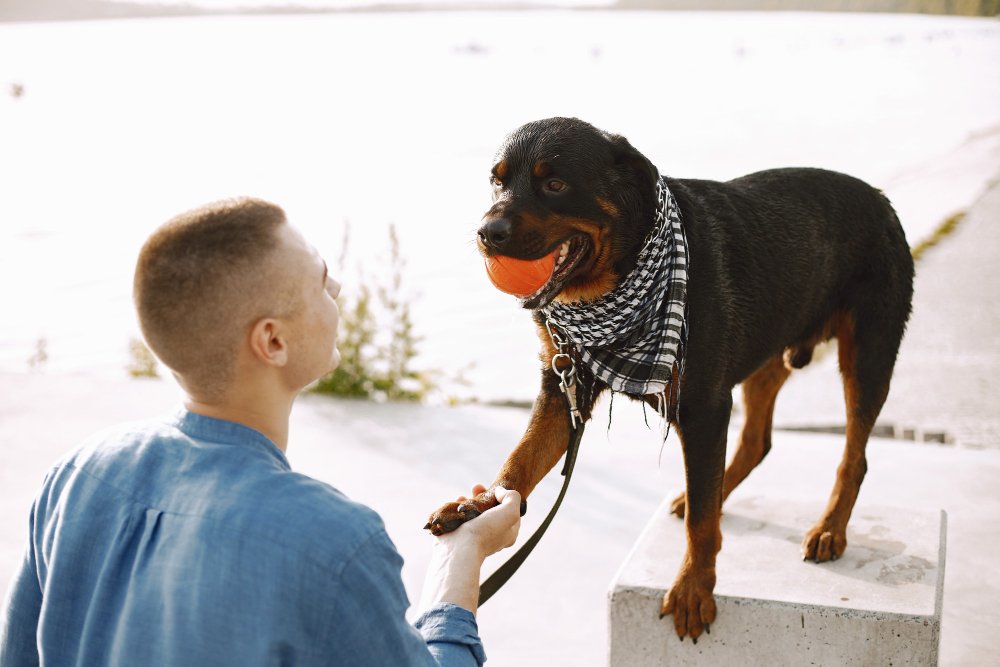How to Train a Rottweiler to Be a Well-Behaved Family Dog
Imagine transforming your powerful, muscular Rottweiler into the perfect family companion – a dog that's gentle with children, obedient to commands, and still maintains their noble protective nature. While Rottweilers often get misconceptions about being aggressive, the truth is these intelligent and loyal dogs can become exceptional family pets with the right training approach.
Whether you're a new Rottweiler parent or looking to refine your current pet's behavior, in this article, you will learn training techniques that create lasting results.
In this detailed guide, I will unlock the secrets to successful Rottweiler training, from essential puppy basics to advanced behavioral techniques. We will find out how to harness their natural intelligence and loyalty while addressing common challenges that Rottweiler owners face.
Whether you're starting with a puppy or working with an adult dog, these proven strategies will help you develop a well-mannered, sociable, and confident family companion.
Understanding Rottweiler Psychology
Rottweilers are intelligent, loyal dogs with a natural protective instinct. Their strong personality requires an owner who can provide firm but gentle guidance. These powerful dogs respond best to positive reinforcement techniques that build trust and respect.
Training success begins with understanding that Rottweilers form deep bonds with their families. This attachment can be channeled into positive behaviors through proper training. Their protective nature makes early socialization crucial for developing a well-adjusted family dog.
Foundation Training Principles
The cornerstone of effective Rottweiler training lies in establishing strong name recognition and eye contact. This creates a reliable communication channel between dog and handler, which becomes essential in situations requiring immediate control.
Consistency in commands and expectations plays a vital role in training success. Using clear, simple verbal cues helps establish you as a confident leader without relying on force. This approach strengthens the trust between you and your Rottweiler while supporting long-term obedience.
Early Socialization Techniques
Proper socialization during the puppy stage is crucial for developing a well-adjusted adult Rottweiler. Early exposure to various environments, people, and situations helps prevent fear-based behaviors later in life.
Key Socialization Elements:
-
Expose your Rottweiler to different people and friendly, vaccinated dogs
-
Visit various environments like parks and quiet streets
-
Introduce different sounds and experiences
-
Maintain positive associations during new encounters
-
Enroll in structured puppy classes

Establishing Basic Obedience
Teaching fundamental commands creates the foundation for more advanced training. Start with essential commands like sit, stay, come, and down. These basic instructions form the building blocks for more complex behaviors and help establish your role as a leader.
Training sessions should be kept short and positive, typically lasting 10-15 minutes several times daily. This helps maintain your Rottweiler's focus and prevents frustration. Remember to use high-value treats and consistent verbal praise to reinforce desired behaviors.
Advanced Training Development
Once basic obedience is mastered, progress to more challenging exercises that stimulate your Rottweiler's mind and reinforce control. This includes off-leash training, advanced recall, and behavior control in high-distraction environments.
Focus on building duration and distance in commands gradually. This helps your Rottweiler develop better self-control and reliability in various situations. Remember to maintain consistency in your expectations and commands throughout the training process.
Managing Protective Instincts
Rottweilers naturally possess protective instincts that need proper channeling through training. Teaching your dog to distinguish between normal situations and genuine threats is essential for family safety.
Controlled socialization helps prevent overprotective behaviors while maintaining the breed's natural guarding instincts. This balance is crucial for developing a well-behaved family companion that can appropriately assess situations.

Exercise and Mental Stimulation
Regular physical activity and mental challenges are essential for a well-behaved Rottweiler. Provide at least 1-2 hours of daily exercise through walks, play sessions, or structured activities.
Incorporate training exercises into daily routines to maintain engagement and reinforce learned behaviors. Mental stimulation through puzzle toys and training games helps prevent boredom-related behavioral issues.
How Can You Prevent Common Behavioral Issues in Rottweilers?
Understanding and preventing behavioral problems before they start is crucial for Rottweiler owners. Common issues like leash pulling, excessive barking, and resource guarding can be addressed through early intervention and consistent training techniques.
Regular training sessions focused on impulse control help prevent these unwanted behaviors from developing. Teaching your Rottweiler to "leave it" and "wait" builds self-control and respect for boundaries.
Creating clear rules and boundaries from the beginning helps your Rottweiler understand expectations. This proactive approach reduces the likelihood of behavioral issues developing later in life.
What Role Does Leadership Play in Rottweiler Training?
Establishing yourself as a confident, calm leader is essential for successful Rottweiler training. These dogs naturally look for guidance and structure from their human family members.
Leadership isn't about dominance or force, but rather about consistency and fair boundaries. Your Rottweiler needs to trust your judgment and feel secure in following your lead.
Being a good leader means providing clear communication, consistent rules, and positive reinforcement for desired behaviors. This builds a strong foundation of mutual respect and understanding.
When Should You Consider Professional Training Support?
While many aspects of Rottweiler training can be handled at home, there are times when professional guidance becomes valuable. Working with a qualified trainer can help address specific behavioral challenges or advance your training goals.
Professional trainers can offer personalized strategies based on your dog's temperament and your family's needs. They can also help identify and correct any training mistakes before they become ingrained habits.
Consider professional support during critical development periods or when dealing with complex behavioral issues. This investment can prevent problems from escalating and ensure proper training progression.

How Do You Maintain Training Success Long-Term?
Maintaining your Rottweiler's training requires ongoing commitment and reinforcement. Regular practice of learned commands and behaviors helps prevent regression and strengthens the bond between you and your dog.
Incorporating training into daily activities keeps your Rottweiler mentally engaged while reinforcing good behavior. Simple activities like asking for a "sit" before meals or practicing "stay" during daily routines help maintain training standards.
Consistency in rules and expectations among all family members ensures your Rottweiler understands and respects boundaries consistently. Regular refresher training sessions help maintain and build upon established behaviors.
Frequently Asked Questions
How long does it take to train a Rottweiler?
Training is an ongoing process that typically requires several months for basic obedience, with continued reinforcement throughout the dog's life.
Are Rottweilers good with children?
When properly trained and socialized, Rottweilers can be excellent family dogs. However, supervision is always necessary with young children.
What age should Rottweiler training begin?
Training should start immediately when you bring your puppy home, typically around 8 weeks of age.
How often should I train my Rottweiler?
Short, daily training sessions of 10-15 minutes multiple times per day are most effective.
Conclusion
Successfully training a Rottweiler requires patience, consistency, and positive reinforcement techniques. By following these guidelines and maintaining a structured approach, you can develop a well-behaved family companion that exemplifies the breed's loyal and protective nature while being a joy to handle.
Remember that each Rottweiler is unique, and training should be tailored to your dog's individual personality and learning style. With dedication and the right approach, your Rottweiler can become a well-mannered family member that brings pride and joy to your household.
Top Pick-









Comments